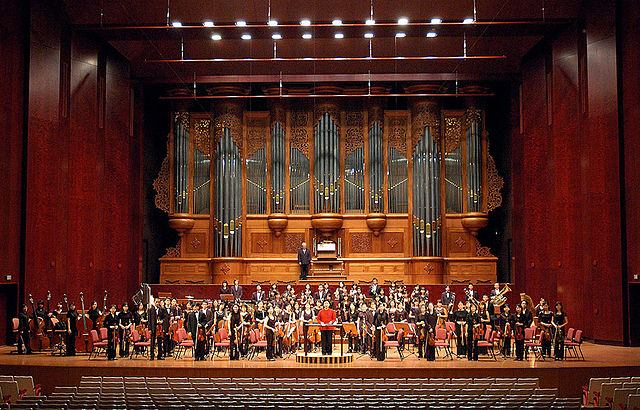The music of Taiwan reflects the diverse culture of Taiwanese people. Taiwan has undergone several economic, social, and political changes through its cultural history, and Taiwanese music reflects those issues in its way. The music of the country has adopted a mixed style. As a country rich in Chinese folk culture and with many indigenous tribes with their own distinct artistic identity, various folk music styles are appreciated in Taiwan. In addition, people in Taiwan highly appreciate various style of Western classical music and pop music. Taiwan is a major Mandopop hub.
Apo Hsu and the NTNU Symphony Orchestra on stage in the National Concert Hall in Taipei
A-mei
Chthonic
Mandopop or Mandapop refers to Mandarin popular music. The genre has its origin in the jazz-influenced popular music of 1930s Shanghai known as Shidaiqu; later influences came from Japanese enka, Hong Kong's Cantopop, Taiwan's Hokkien pop, and in particular the Campus Song folk movement of the 1970s. 'Mandopop' may be used as a general term to describe popular songs performed in Mandarin. Though Mandopop predates Cantopop, the English term was coined around 1980 after "Cantopop" became a popular term for describing popular songs in Cantonese. "Mandopop" was used to describe Mandarin-language popular songs of that time, some of which were versions of Cantopop songs sung by the same singers with different lyrics to suit the different rhyme and tonal patterns of Mandarin.
Zhou Xuan, the most notable singing star of the early Shanghai period.




